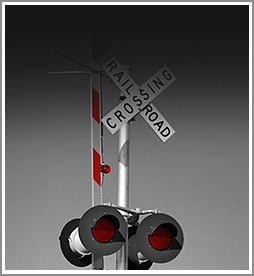
A large percentage of people who spend years of their life working for railroads will develop debilitating lung diseases such as emphysema, cancer and mesothelioma. Older and retired railroaders who can prove that on-the-job exposures to asbestos, diesel exhaust and other toxic substances caused their illness have the right to file personal injury and wrongful death claims against their former employers.
Such lawsuits are filed under provisions of a law call the Federal Employers Liability Act, or FELA. Unsurprisingly, rail corporations tend to fight FELA lawsuits strenuously. And, writing as a Virginia-based attorney who has spent four decades representing railroad employees, the companies sometimes have a point. A case of chronic obstructive pulmonary disease (COPD) could have been caused by something other than railroad work. Smoking complicates many FELA claims. Asbestos was once found everywhere—homes, schools, car parts, even crayons.
So how can an ill railroader or the family of a former railroad employee who lost their life know whether they have a legitimate FELA claim?
LEARN MORE
- Facts About Asbestos Use by Railroads and Mesothelioma Among Railroad Workers
- How Railroad Illness Attorneys Prove On-the-Job Asbestos Exposure Caused Mesothelioma
- What Is the Federal Employers Liability Act (FELA)?
Recognize the Risks for Occupational Illnesses
No railroad job (or any other) is 100 percent safe at all times. But working on and around trains with diesel locomotives definitely raises a person’s risks for developing occupational illnesses.
Until very recently, exhaust filled crew cabs, endangering engineers and conductors. Idling work engines and diesel-powered generators in rail yards put trackmen at risk. Machinists and repairers who regularly serviced and replaced asbestos brake shoes from the 1960s into the 1990s could not help but breathe in the fibers that cause mesothelioma.
The odds for suffering work-related cancer, COPD or mesothelioma increase during each year that a person is subjected to on-the-job exposures to toxic substances. This is especially true for railroaders who started their careers before 2010, when workplace safety rules rarely called for protective equipment such as masks and respirators, and very little was done to limit workers’ time around idling diesel engines.
Know That Illnesses May Take Decades to Develop
Of course, not everyone who spends time breathing in bad air at work gets sick. And, as noted above, the work-related exposures may not be the primary cause of a disease. Last, drawing a direct connection between what happened during a person’s railroad career and a diagnosis later in life is not always easy.
Lung cancer and mesothelioma can take 20-30 years to produce detectable symptoms. What this means for a person who wants to file an occupational illness claim under FELA is that they must receive an accurate diagnosis and tie that to a detailed work history. The degree to which other factors may have contributed to causing the former railroad employee’s disease must be determined.
Partnering with an attorney who has helped other ill railroaders and grieving family members often helps with putting together the work history and drawing connections between what happened in the past and the current situation.
Understand How FELA Works to Hold Negligent Railroad Companies Accountable
FELA makes a rail corporation such as Amtrak, CSX or Norfolk Southern liable for paying compensation to workers who fall ill due to the company’s negligence. Knowing that health hazards existed while doing too little to mitigate those hazards could be a negligent act that leads to liability for lung cancer or mesothelioma. Continuing to use asbestos after learning that the material caused mesothelioma would be negligent, for instance.
A growing historical record clearly establishes that rail corporation executives learned in the 1930s that on-the-job exposures to asbestos sickened and killed railroad employees. The material remained in wide use for more than half a decade longer.
Stated simply, railroads could have prevented tens of thousands of lung diseases and chose not to do so. They should be held accountable for that willful negligence. FELA allows for findings of comparative negligence, as well, meaning that even if smoking did contribute to a person’s health problems, the railroad can still be found partly liable.
No outcome from a FELA lawsuit can ever be guaranteed, but strong grounds for filing a lung disease claim exist when a person worked for railroad; was exposed regularly to diesel exhaust, asbestos or other toxic materials; and developed their health condition because the rail corporation that employed them did not actively try to protect them from harm.
EJL
yy
When railroad workers (e.g., conductor, switchman, engineers, track maintenance workers) are diagnosed with cancer (whether it be mesothelioma cancer, or lung, bladder, throat, colon, brain cancer), the worker and their family members wonder whether the cause of the cancer was asbestos equipment or products.
The spouses